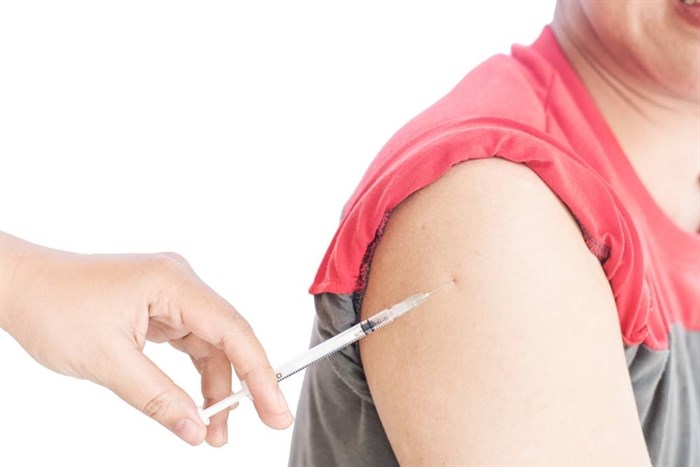
Image Credit: Shutterstock
March 17, 2016 - 9:00 PM
YOUTH HAD BAD REACTION TO VACCINATIONS AS A CHILD
VERNON - You might not think your child is old enough to give consent for a vaccination, but the local health authority does.
A North Okanagan mother is sharing her story after finding out about a policy that allows health care providers to get consent from minors under 19. She wants other parents to be aware of what public health officials refer to as ‘mature minor consent’ but asked that we not use her name.
She says it was last Friday, March 11 that her 15-year-old was pulled from class, put in a room with a public health nurse and told he didn’t have consent forms for the scheduled immunization, but that he could consent to it himself if he wished.
“The whole time he’s texting me and I’m saying ‘get out of that office,’” she says.
Ultimately, he didn’t receive the vaccine. His mom worries what would have happened if he didn’t have a cell phone, or hadn’t thought to contact her. As a teenager, she says it’s possible he wouldn’t have remembered the severe reaction he had to a shot as a child — the reason she stopped getting vaccinations for him.
“At no point should they be pulling my kid out of class and pressuring him to make that decision in ten minutes,” she says.
She never consented to her son getting the shot, but now realizes she never explicitly said ‘no’ either.
“I got three emails from the school asking for my consent. I did not consent and I ignored it. To me, if you don’t get a yes, it’s a no,” she says.
She says she never received a phone call or got any paper copy consent forms.
“Whether my son didn’t get one, or he’s a teenage boy and lost it, I didn’t get it,” she says.
And because she didn’t check the box that says ‘no’ to the immunization, immunizers offered him the opportunity to decide for himself.
The Interior Health Authority said no one from the immunization program was available for an interview today, March 17, but sent a written response from Pamela De Bruin, the manager of communicable diseases and immunization programs.
According to De Bruin, the mature minor consent policy is used in the grade 9 immunization program and has been in place in Interior Health for roughly 10 years, but is ‘not often employed as it is our standard to attempt to obtain consent from parents.’ She says that’s done by sending the consent form home and attempting contact by phone, letters and school reminders at least three times. Parents are also informed about mature minor consent in a letter and a health file, she says.
“It is important to note that if a parent/guardian has informed us they wish to refuse vaccination we would not accept mature minor consent from the student,” De Bruin says. “If a student presents for immunization without parent/representative consent, it is the immunization provider’s professional responsibility to inform a student about their ability to provide consent on their own behalf. The health care provider, however, will carefully assess a minor’s ability to provide consent.”
Providers use ‘clinical skills’ to assess a person’s capability to provide consent, including language skills, hearing and understanding of the information provided. As part of the talk — which is demonstrated in the video below — they explain the benefits of immunization, common side effects and the potential for adverse reactions. Immunizers also ask about the individual’s past experiences with immunizations, De Bruin says.
“If the immunizer is not confident that a child is capable of consent or does not understand the information provided they will not immunize the child. In addition, if the immunizer feels the student is unsure or if there is potential for an adverse reaction they will not immunize the student,” De Bruin says.
Unfortunately, the Vernon parent we talked to wasn’t aware of the policy and fears her son might have suffered a bad reaction if he’d received the shot.
“A ton of people have no idea,” she says, adding she's aware of other parents who went through the same experience. “The danger that comes is children aren’t always aware of their own medical issues…. My intention is to create awareness for people so they understand simply not checking yes — if you just don’t check anything — they are now finding ways around it.”
To contact a reporter for this story, email Charlotte Helston at chelston@infonews.ca or call 250-309-5230. To contact the editor, email mjones@infonews.ca or call 250-718-2724.
News from © iNFOnews, 2016